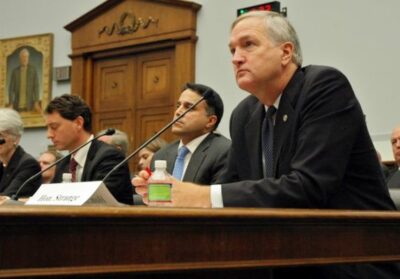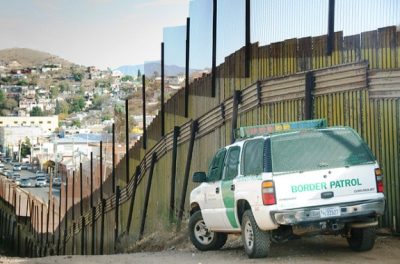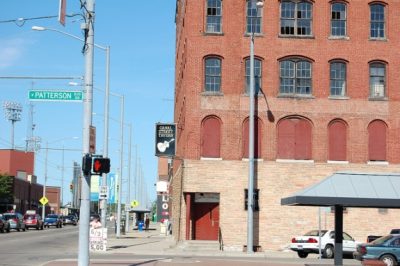Immigration Reform
The last time Congress updated our legal immigration system was November 1990, one month before the World Wide Web went online. We are long overdue for comprehensive immigration reform.
Through immigration reform, we can provide noncitizens with a system of justice that provides due process of law and a meaningful opportunity to be heard. Because it can be a contentious and wide-ranging issue, we aim to provide advocates with facts and work to move bipartisan solutions forward. Read more about topics like legalization for undocumented immigrants and border security below.
Dayton, Ohio Passes Plan to Revitalize Economy through Immigrant Integration
Shortly after Alabama began implementing their anti-immigration law (HB 56), Dayton, Ohio passed legislation that welcomes and integrates immigrants with the hope that they will revitalize their slowing economy. Faced with a declining population, Dayton’s City Commission voted unanimously last week to adopt the Welcome Dayton Plan—a plan that is tapping into the very economic stimulus that Alabama is driving out. Read More

Restrictionist GOP Members Rely on Scare Tactics in Hearing on Prosecutorial Discretion
The luster may be wearing off Republican attacks on DHS’s prosecutorial discretion policies. Efforts to paint the prioritization of cases as “backdoor amnesty” didn’t seem to go anywhere in yesterday’s hearing on immigration enforcement in the Subcommittee on Immigration Policy and Enforcement. ICE Director John Morton defended the prosecutorial discretion guidance he issued earlier this year as “trying to make good calls and good judgments” within a series of tough choices and finite resources. Members opposed to the Administration’s policies had a hard time rebutting the resource point, deciding instead to rely on scare tactics and hyperbolic comparisons to attack the guidance. Read More

The Facts (and Numbers) Don’t Matter in Alabama
Alabama Attorney General, Luther Strange, testifying before Congress. Photo by lutherstrange. As each day passes under Alabama’s new, highly restrictive immigration law (HB56), it is becoming increasingly clear that facts (and numbers) had very little to do with the passage of the law—and that they continue to be ignored as state officials defend the law. In fact, this willful disregard of facts and data may mean Alabama is about to pay a very high price for a small problem. Read More

Governor Jerry Brown Signs Immigration Bills that Help, Not Hurt, California’s Economy
Take note, Alabama. Over the weekend, Governor Jerry Brown signed two immigration bills that seek to boost California’s struggling economy, rather than saddle it and small businesses with costly enforcement programs. Governor Brown signed the “Employment Acceleration Act of 2011” (AB 1236), a bill that prohibits the state from requiring employers to use E-Verify, as well as the other half of California’s DREAM Act (AB 131), a bill which makes college more affordable for undocumented students and “benefits us all,” as Gov. Brown says, “by giving top students a chance to improve their lives and the lives of all of us.” Read More

Tell Me Again How Alabama’s Immigration Law is a “Victory for the State?”
Almost immediately after Judge Sharon Blackburn failed to enjoin key provisions of Alabama’s draconian immigration law (HB 56) last week, Alabamans began to feel the sting of the law’s harsh provisions. As immigrants leave the state, farmers, contractors, and homebuilders complain that labor shortages are and will continue to hurt their businesses. School administrators worry absent students will result in the loss of future funding. Immigrant rights groups fear the law will prevent victims from reporting crime to the police and pregnant women from going to the hospital. While Alabama Governor Robert Bentley hailed HB 56 as a “victory for the state,” the law’s intended and unintended consequences have proven to be anything but. Read More

Federal Judge Denies DOJ’s Request to Stay Alabama’s Immigration Law
Today, U.S. District Judge Sharon Blackburn denied the Department of Justice’s (DOJ) request to stay her previous ruling last week which kept major portions of Alabama’s restrictive immigration law, HB 56, intact. Following the judge’s ruling, the DOJ requested a stay of the law pending… Read More

DHS Needs to Target Violent Drug Cartels, Not Immigrants Trying to Reunite with Families
Times have changed along the U.S.-Mexico border. In just a few short years, Mexican drug cartels have taken over the people-smuggling business. Although U.S. border walls and fences have proliferated, they have done nothing to prevent the cartels from moving drugs, human beings, guns, and money back and forth across the border. The combination of heightened U.S. border enforcement and cartel violence has made crossing the border increasingly dangerous. Yet large numbers of unauthorized immigrants who were previously deported from the United States continue to risk their lives by crossing the border in order to reunite with their U.S. families. The Obama Administration’s current enforcement policies treat these family-bound migrants like hardened criminals, while failing to address the real threat to security—the cartels. Read More

Declining Cities Look to Immigrants to Revitalize Economies and Increase University Enrollment
In a recent speech to the U.S. Chamber of Commerce, New York City Mayor Michael Bloomberg highlighted the vital role immigrants play in stimulating economic growth. Bloomberg called for immigration policies that “spur innovation, increase the number of entrepreneurs who start businesses here, and create jobs for Americans on every rung of the economic ladder." With U.S. unemployment still hovering around 9%, some declining U.S. cities are also looking to harness the economic and entrepreneurial power of immigrants. Small towns, particularly in America’s rust belt, are contemplating programs that attract immigrant growth in hopes of revitalizing their towns and universities. Read More

Can Alabama Afford to Enforce their New Restrictive Immigration Law?
This week, U.S. District Judge Sharon Blackburn failed to enjoin major provisions of Alabama’s extreme immigration law, HB 56, a law designed to drive unauthorized immigrants from the state. Under the law, police officers are now required to demand proof of legal status from anyone who seems foreign. School administrators are required to ask children about their immigration status and that of their parents. People and businesses—including utilities companies—are encouraged not to enter into contracts with anyone who cannot prove their legal status. While some anti-immigrant groups are celebrating the judge’s decision, Alabama businesses and state agencies may ultimately bear the economic brunt of this damaging law. Read More

What You Should Know About Initial Rulings on Alabama’s Immigration Law
Yesterday’s initial rulings from Judge Sharon Blackburn over Alabama’s new anti-immigrant legislation are disturbing and disappointing on many fronts. Absent a reversal of her decision based on an emergency appeal, many provisions of the law that mirror those struck down in every other jurisdiction will go into effect. If so, everyone in Alabama will pay the price of the law’s implementation—and there can be no doubt that residents of Alabama with dark skin, a foreign sounding name, or an accent will face more questions, intrusions, and humiliations. From a legal perspective, however, declarations of a “victory” for Alabama by media outlets and anti-immigrants’ rights groups are premature. The truth is much more complicated. Read More
Make a contribution
Make a direct impact on the lives of immigrants.
